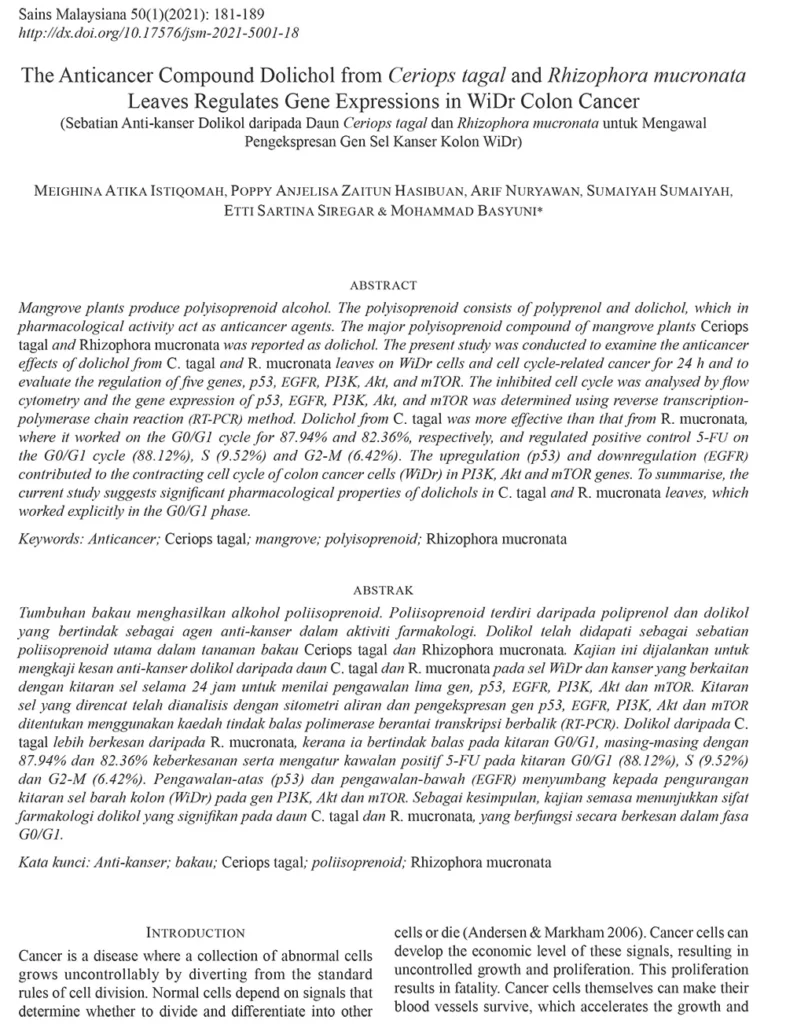Mangrove plants produce polyisoprenoid alcohol. The polyisoprenoid consists of polyprenol and dolichol, which in pharmacological activity act as anticancer agents. The major polyisoprenoid compound of mangrove plants Ceriopstagal and Rhizophora mucronata was reported as dolichol. The present study was conducted to examine the anticancer effects of dolichol from C. tagal and R. mucronata leaves on WiDr cells and cell cycle-related cancer for 24 h and to evaluate the regulation of five genes, p53, EGFR , PI3K, Akt, and mTOR. The inhibited cell cycle was analysed by flow cytometry and the gene expression of p53, EGFR , PI3K, Akt, and m TOR was determined using reverse transcriptionpolymerase chain reaction (RT-PCR) method. Dolichol from C. tagal was more effective than that from R. mucronata, where it worked on the G0/G1 cycle for 87.94% and 82.36%, respectively, and regulated positive control 5- FU on the G0/G1 cycle (88.12%), S (9.52%) and G2-M (6.42%). The upregulation (p53) and downregulation (EGFR) contributed to the contracting cell cycle of colon cancer cells (WiDr) in PI3K, Akt and mTOR genes. To summarise, the current study suggests significant pharmacological properties of dolichols in C. tagal and R. mucronata leaves, which worked explicitly in the G0/G1 phase
The Anticancer Compound Dolichol from Ceriops tagal and Rhizophora mucronata Leaves Regulates Gene Expressions in WiDr Colon Cancer
The Anticancer Compound Dolichol from Ceriops tagal and Rhizophora mucronata Leaves Regulates Gene Expressions in WiDr Colon Cancer
Facebook
Twitter
LinkedIn
WhatsApp

Authors:
Meighina Atika Istiqomah, Poppy Anjelisa Zaitun Hasibuan, Arif Nuryawan, Sumaiyah Sumaiyah, Etti Sartina Siregar & Mohammad B Asyuni
